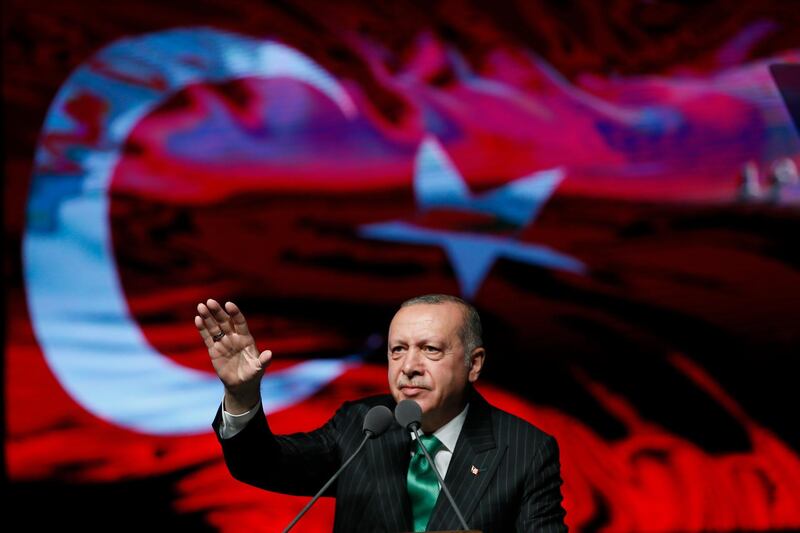Turkish President Recep Tayyip Erdogan will open Germany’s largest mosque next week during a state visit less than two years after a clerical spying scandal that tainted relations between the two countries.
The visit comes amid lingering suspicions surrounding the activities of a dozen Turkish imams who were investigated over the monitoring of supporters of the US-based cleric Fetullah Gulen, who Ankara accuses of masterminding an attempted military coup in 2016.
Some of the imams were whisked out of Germany before prosecutors announced in 2017 that they would close their investigation without any charges being laid over the intelligence-gathering operation.
But tensions remain after Mr Erdogan accused Germany of harbouring some of the coup plotters. German media reported on Thursday that the country’s intelligence agency was considering permanent surveillance of the Turkish-Islamic organisation DITIB because of suspected “anti-constitutional religious-nationalist activities”.
The Cologne-based organisation organises the training of imams in Turkey and funds hundreds of mosques in Germany. The mosques include Europe’s largest, located in Cologne, and will be opened by Mr Erdogan during the two-day visit starting on Friday despite the ongoing controversy over the spying scandal.
________________
Read more:
[ Turkey slashes growth forecast and sees jobless rates rising ]
[ UK thanks Turkey for brokering Idlib agreement ]
________________
The ceremony is seen as an opportunity for him to reach out to some of the three million people of Turkish origin who live in Germany. German officials have not sought to block Mr Erdogan's engagement. “It’s a delicate balancing act,” said Dr Magdalena Kirchner, a senior analyst at Conias Risk Intelligence. “Would you want to stop Turks from reaching out to the president when he’s there about dialogue and reconciliation?”
Efforts by his party to rally the support of Turkish emigres were stymied by German officials who blocked campaigning within Germany to support his re-election and for a referendum that gave him sweeping new powers. Mr Erdogan responded by comparing officials to Nazis.
The stakes are high for Mr Erdogan after an economic crisis prompted by a fallout with the United States over the arrest of a US evangelical pastor, Ankara's shift towards Russia, and the clamp down on dissent in the wake of the attempted putsch.

Rights campaigners and journalists are set to protest against Mr Erdogan during the two-day visit because of his crackdown on the media in his native Turkey amid continued suspicions over the president's muscular leadership.
The government of Chancellor Angela Merkel, however, also wants an improvement in relations in part to protect more than 6,000 German businesses in Turkey concerned about the prospect of recession, said Dr Kirchner. A collapse of the regime would raise broader strategic concerns about stability on the fringes of Europe because of Ankara’s role as a gateway into Syria.
Mr Erdogan will be feted with a state banquet and will meet Mrs Merkel to discuss Syria before he leaves on Saturday.
“The Turkish president sees Germany in particular, and the European Union in general, as a counterbalance to the US,” said Aykan Erdemir, a former Turkish lawmaker and senior fellow at the US-based Foundation for Defense of Democracies research centre.
“Erdogan also hopes that any funds and investment that Berlin can provide could help alleviate his economic problems at home. Germany feels the need to work closely with Erdogan to avert another wave of Syrian refugees.”







